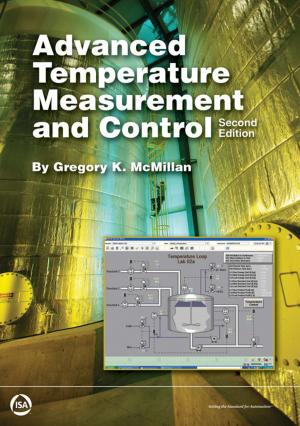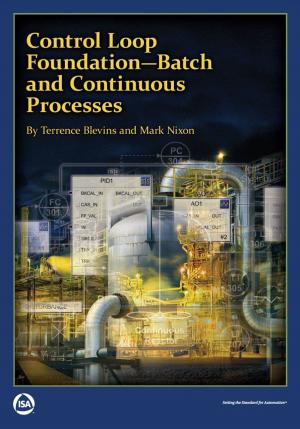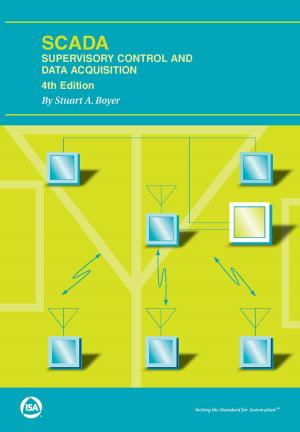SCADA: Supervisory Control and Data Acquisition, Fourth Edition
Nonfiction, Science & Nature, Technology, Automation| Author: | Stuart A. Boyer | ISBN: | 9781941546178 |
| Publisher: | International Society of Automation | Publication: | February 15, 2016 |
| Imprint: | International Society of Automation | Language: | English |
| Author: | Stuart A. Boyer |
| ISBN: | 9781941546178 |
| Publisher: | International Society of Automation |
| Publication: | February 15, 2016 |
| Imprint: | International Society of Automation |
| Language: | English |
Supervisory control and data acquisition (SCADA) technology has evolved over the past 30 years as a method of monitoring and controlling large processes. This reference book offers overviews of SCADA’s component technologies, as well as details necessary to understand the big picture. SCADA processes cover areas that may be in the thousands of square miles, and have dimensions that may be hundreds, occasionally thousands, of miles long. Now a mature technology, SCADA includes, but is not limited to, software packages that can be incorporated into a system of hardware and software to improve the safety and efficiency of the operation of these large processes. After completing these 15 self-study units, readers should be conversant with SCADA nomenclature and architecture, understand the basic technology of the system’s building blocks, understand its limitations, understand how it can benefit particular operations, and have a basis for selecting appropriate SCADA technology for their operational requirements.This Fourth Edition includes a unit about improving the security of SCADA systems and has been rearranged to provide a more logical presentation of the subject. - See more at: https://www.isa.org/store/products/product-detail/?productId=116269#sthash.ldUS8i9g.dpuf
Supervisory control and data acquisition (SCADA) technology has evolved over the past 30 years as a method of monitoring and controlling large processes. This reference book offers overviews of SCADA’s component technologies, as well as details necessary to understand the big picture. SCADA processes cover areas that may be in the thousands of square miles, and have dimensions that may be hundreds, occasionally thousands, of miles long. Now a mature technology, SCADA includes, but is not limited to, software packages that can be incorporated into a system of hardware and software to improve the safety and efficiency of the operation of these large processes. After completing these 15 self-study units, readers should be conversant with SCADA nomenclature and architecture, understand the basic technology of the system’s building blocks, understand its limitations, understand how it can benefit particular operations, and have a basis for selecting appropriate SCADA technology for their operational requirements.This Fourth Edition includes a unit about improving the security of SCADA systems and has been rearranged to provide a more logical presentation of the subject. - See more at: https://www.isa.org/store/products/product-detail/?productId=116269#sthash.ldUS8i9g.dpuf















